Buying a condo in an older building can be a smart way to get into the Vancouver real estate market. Many older condo buildings in Vancouver offer larger floor plans, great locations, and a strong sense of community that newer high-rises sometimes lack.
But age also brings risk.
If you are considering an older building in areas like Kitsilano, the West End, Mount Pleasant, Fairview, or East Vancouver, you need a clear, practical framework to decide whether that condo is a smart move or a future money pit.
This guide acts as your Vancouver condo buying guide for older buildings. You will learn:
-
Why older condos can be a great value
-
The main risks of buying an older condo
-
How Vancouver strata maintenance and planning affect your costs
-
What to watch for with condo special levies in Vancouver
-
How to read a depreciation report in Vancouver
-
Why strata insurance in Vancouver has become more expensive
-
What to look for in a Vancouver condo inspection
-
How to judge overall condo building condition in Vancouver and its impact on long-term value
Why Buyers Are Drawn to Older Condo Buildings in Vancouver
More Space for Your Money
One of the biggest draws of older condos is simple: square footage.
Many buildings from the 1960s through the 1990s offer:
-
Larger living rooms
-
Full-size bedrooms that fit real furniture
-
Bigger storage spaces and closets
-
Generous balconies or enclosed sunrooms
In a city where every square foot counts, an older condo in Kitsilano or the West End often feels more like a proper home than a compact box. Buyers who prioritize livability over brand-new finishings see a lot of value here.
Prime, Established Neighborhoods
Older condo buildings in Vancouver tend to sit in mature, central neighborhoods:
-
Kitsilano – close to the beach, shops on West 4th, and bike routes
-
West End – walking distance to Stanley Park, English Bay, and downtown
-
Fairview and South Granville – near hospitals, offices, and transit
-
Mount Pleasant – vibrant, café-heavy, creative hub
These areas were built out decades ago, so the condos that exist there are often older. If your priority is lifestyle and location, this is where you find it.
Character, Community, and Stability
Older buildings often have:
-
Long-term owners who care about the property
-
A stable community feel instead of constant turnover
-
Mature landscaping and tree-lined streets
For many buyers, especially end-users, these soft benefits matter as much as new appliances or lobby décor.
Key Risks of Buying an Older Condo in Vancouver
The flip side: age introduces risk. Your job is not to avoid older condos, but to understand the risks of buying an older condo and decide whether the value offsets those risks.
Building Envelope and Water Ingress
Vancouver has a wet climate. Water is the number one enemy of any building.
In older condos, you need to think carefully about:
-
Condition of exterior walls (stucco, siding, brick, cladding)
-
Window and door seals
-
Decks, balconies, and railings
-
Roof age and past repairs
Red flags include:
-
Staining on exterior walls
-
Soft or rotten wood trim
-
Cracked, patched, or bulging stucco
-
Repeated references in strata minutes to leaks or water ingress
For buildings from the 1980s and 1990s, ask specifically about rainscreening. Some of these condos went through the “leaky condo” era and had full exterior remediation done. A fully rainscreened building can be a big positive, but a building from that era with no rainscreen work done could represent serious future cost.
Roof, Windows, and Other Major Components
Every major component has a life span:
-
Roofs eventually need replacement
-
Original aluminum windows lose efficiency and can leak
-
Balcony membranes and railings break down
-
Parkade membranes and concrete need repair
If you are looking at a 40-year-old building that still has many original components, it is fair to assume:
-
Replacement is coming
-
The cost will be shared across all owners
This is where understanding condo building condition in Vancouver becomes critical. You are not just buying a unit; you are buying a share of every future repair.
Plumbing and Mechanical Systems
Plumbing in older buildings deserves special attention:
-
Galvanized steel piping (common in older buildings) can corrode from the inside
-
Poly-B (polybutylene) piping, used in some 80s/90s buildings, is known for failures
-
Old copper can also reach the end of its life
Frequent references in the minutes to leaks, pinhole pipe failures, or water damage claims are warning signs.
The same goes for:
-
Original boilers or heating systems
-
Old hot water systems serving the building
-
Aging elevators that break down often
Replacing plumbing or elevators is not cheap. It is common for these projects to lead directly to condo special levies in Vancouver.
Electrical and Fire Safety
Older buildings may have:
-
Outdated electrical panels or wiring
-
Limited fire detection systems
-
No sprinkler systems in suites or common areas
Insurers pay close attention to these details, especially in older concrete or wood-frame buildings. This ties directly into the cost and availability of strata insurance in Vancouver.
Asbestos and Hazardous Materials
Most older buildings have some level of asbestos in finishes, drywall mud, or old flooring. It is usually safe if left undisturbed, but:
-
Renovations become more expensive
-
Any major building project must factor in proper abatement
This is another reason major projects in older buildings cost more than people expect.
Strata Maintenance: Why It Makes or Breaks Older Buildings
Age alone does not tell you much. What matters is how the building has been cared for.
Vancouver strata maintenance is one of the most important factors in your decision.
Contingency Reserve and Maintenance Culture
Look at:
-
How much money is in the contingency reserve fund
-
Whether contributions to that fund are increasing each year
-
Whether the strata has a clear long-term maintenance plan
A well-run strata will:
-
Fund regular preventative maintenance
-
Build reserves for future big projects
-
Respond quickly to issues and hire professionals
A poorly run strata will:
-
Keep strata fees low to keep owners happy
-
Postpone maintenance
-
Rely on last-minute condo special levies in Vancouver when things fail
The same 40-year-old building can be a great buy or a disaster depending on that difference.
Reading the Minutes
Strata minutes show you the culture of the building.
Things to look for:
-
Repeated references to leaks, disputes, or emergency repairs
-
Owners pushing back on necessary work
-
Professional reports being ignored or delayed
-
Or, on the positive side, steady implementation of recommended work
You want to see a council that takes Vancouver strata maintenance seriously and treats the property like an asset, not an expense to avoid.
Special Levies: The Big Cheques No One Talks About Up Front
Special levies are one-time charges to owners to pay for big projects the contingency fund cannot cover.
Common projects that trigger levies in older condo buildings in Vancouver:
-
Roof replacement
-
Full plumbing replacement (re-piping)
-
Complete building envelope and rainscreen
-
Window replacement
-
Elevator modernization
-
Parkade membrane and structural repairs
As a buyer, assume that in an older building, you will face at least some level of special levy over your ownership period.
How to Treat Levies in Your Decision
Ask yourself:
-
Does the price reflect the future cost?
-
Has the building already gone through its “big levy” era and is now in better shape?
-
Are upcoming projects clearly identified in the depreciation report in Vancouver for that building?
A building that has already completed a major envelope, roof, and plumbing upgrade can be very attractive. The pain is behind you. A building that has deferred these items will look cheaper, but you might be the one writing the big cheque.
Depreciation Reports: Your Best Friend in an Older Building
A depreciation report in Vancouver is a long-term repair and replacement plan prepared by an engineer or other qualified professional. It typically:
-
Lists all major components of the building
-
Estimates their remaining life
-
Estimates future repair or replacement costs
-
Suggests funding models to keep the building on track
For buyers, this is one of the most important documents you can read.
How to Use the Depreciation Report
Look for:
-
Big projects scheduled over the next 10–15 years
-
Whether those projects already have funds allocated
-
Whether strata contributions match the recommended funding model
If the report shows:
-
Roof replacement in 5 years
-
Window replacement in 7 years
-
Parkade repairs in 10 years
and the contingency reserve fund is very low, you can expect condo special levies in Vancouver during your ownership unless strata fees increase sharply.
If the report shows many big items already completed, that is a strong positive sign for that building’s overall condo building condition in Vancouver.
Strata Insurance in Vancouver: Why It Hits Older Buildings Harder
In recent years, many buildings have seen big increases in strata insurance in Vancouver. Older buildings are often hit hardest, because insurers view them as higher risk due to:
-
Older plumbing systems and more water damage claims
-
Outdated electrical and fire systems
-
Limited seismic upgrades in a city with earthquake risk
For buyers, this matters in two ways:
-
Higher strata fees – insurance is part of the operating budget.
-
Higher deductibles – many policies now have very large water damage deductibles.
What You Should Check
Ask for the building’s insurance summary and look at:
-
Annual premium amount (and whether it has jumped recently)
-
Deductibles for water, fire, and earthquake
-
Any commentary in minutes about difficulty getting coverage
High deductibles mean owners must carry strong personal condo insurance, including coverage for deductible assessments. This should be part of your financial planning for any older building.
Bylaws and Rules: Lifestyle and Investment Impact
Older condos can still have older-style bylaws, so read them carefully.
Key items:
-
Rentals: Recent law changes limit rental bans, but confirm current rules.
-
Pets: Some older buildings restrict pets entirely or only allow small pets.
-
Renovations: There may be clear limits on flooring changes, plumbing changes, or structural alterations.
If part of your strategy is to rent the condo in future, or if you plan major interior renovations, make sure the bylaws support your plan.
Vancouver Condo Inspection: What to Focus on in an Older Building
A thorough Vancouver condo inspection is non-negotiable in older buildings.
Ask your inspector to pay close attention to:
-
Signs of past water damage inside the unit and common corridors
-
Electrical panel type and condition
-
Plumbing connections inside the unit
-
Window condition and signs of condensation or leaks
-
Slopes and drainage on balconies
If possible, have the inspector look at common areas like the parkade, boiler room, and roof access. They cannot open walls, but experienced inspectors can often spot patterns that hint at bigger issues.
Combine the inspection findings with everything you learn from the strata documents. The full picture matters more than any one item in isolation.
How to Judge Value in the Vancouver Real Estate Market
Now we bring it together: how does all this translate into value in the Vancouver real estate market?
The Basic Trade-Off
Older condos typically offer:
-
Lower price per square foot
-
Larger, more livable layouts
-
Prime or established locations
In exchange for:
-
Higher risk of upcoming capital projects
-
Higher maintenance fees in many cases
-
More attention needed on building condition and strata finances
For many buyers, especially those staying five years or longer, the trade-off can make sense.
A Simple Way to Think About It
For any older condo you are serious about, ask:
-
What big money has already been spent?
-
New roof, updated plumbing, rainscreen, modernized elevators? Strong plus.
-
-
What big money is coming?
-
Is there a clear list of large projects in the depreciation report?
-
-
Is the price reflecting that reality?
-
Does this home feel underpriced given its space and location? There is usually a reason. Make sure you know it.
-
-
Can my budget handle a special levy or fee increase if needed?
-
Build in a cushion for surprise costs.
-
If you can answer those questions honestly and still feel comfortable, you are likely making a more informed decision than most buyers.
Final Thoughts: Older Condos Can Be Smart, If You Buy With Your Eyes Open
Older condo buildings in Vancouver can offer real value. You get:
-
Bigger homes
-
Better locations
-
A sense of character and community
But you also take on shared responsibility for a building that has decades behind it.
Use this guide as your Vancouver condo buying guide for older properties:
-
Study Vancouver strata maintenance history
-
Take condo special levies in Vancouver seriously
-
Read the depreciation report in Vancouver for that building
-
Check the cost and structure of strata insurance in Vancouver
-
Invest in a careful Vancouver condo inspection
-
Always judge condo building condition in Vancouver as a whole, not just the individual unit
If you approach older condos with clear eyes and a realistic budget, they can be some of the best opportunities in the Vancouver real estate market.
If you’re thinking about purchasing an older condo in Vancouver and want clarity on the building’s true condition, future costs, and long-term value, I can help. I’ve guided countless buyers through older buildings across Kitsilano, Fairview, Mount Pleasant, and the West End — and I know exactly what to look for so you can make a confident, informed decision.
Whether you need a second opinion on a depreciation report, insight into strata minutes, or expert advice on negotiating based on upcoming repairs, I’m here to help you protect your investment and secure the right home.
Let’s talk about your plans and find a condo that fits your life and your long-term goals.
Contact Adam Chahl at PLACE Real Estate Team – Oakwyn Realty to get started.
FAQs About Buying Older Condo Buildings in Vancouver
1. Are older condo buildings in Vancouver a good investment?
Yes — when the building has been well maintained. Older condos often offer better layouts, prime locations, and lower purchase prices. The key is evaluating the building’s maintenance history, reserve fund strength, and upcoming projects.
2. What are the biggest risks of buying an older Vancouver condo?
The main risks include aging plumbing, outdated electrical systems, roof or envelope issues, and the potential for special levies. Reading strata minutes, reviewing the depreciation report, and hiring a skilled inspector help reduce these risks.
3. Do older condo buildings have higher strata fees?
Not always. Some older buildings keep fees low, which may signal deferred maintenance — a red flag. Others increase fees steadily to fund repairs properly. Always check the budget, contingency fund balance, and history of fee adjustments.
4. How important is the depreciation report when buying an older condo?
Very important. The depreciation report outlines the remaining life of major components and forecasts future repair costs. It’s one of the best tools for understanding whether the building is financially prepared for upcoming maintenance.
5. Should I expect special levies in an older condo building?
It’s reasonable to expect at least one levy over a long enough timeline. Older buildings need ongoing repairs, and levies happen when the reserve fund can’t cover the cost. What matters is whether the price and your budget account for this possibility.
Browse Other Downtown Vancouver Communities
MLS® Listings in Yaletown | Vancouver Real Estate




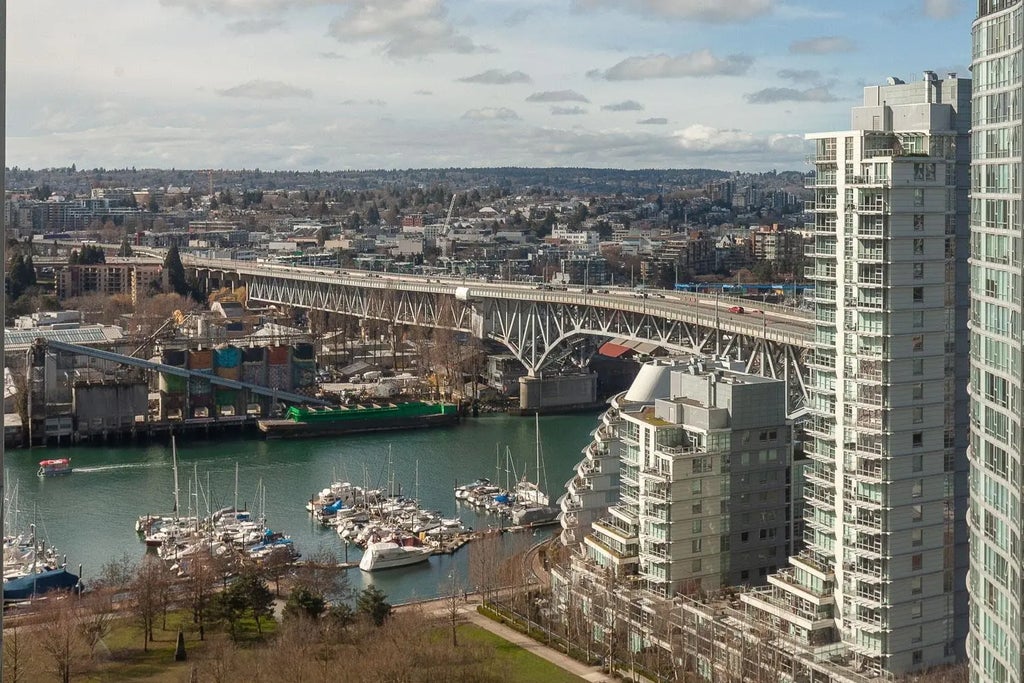
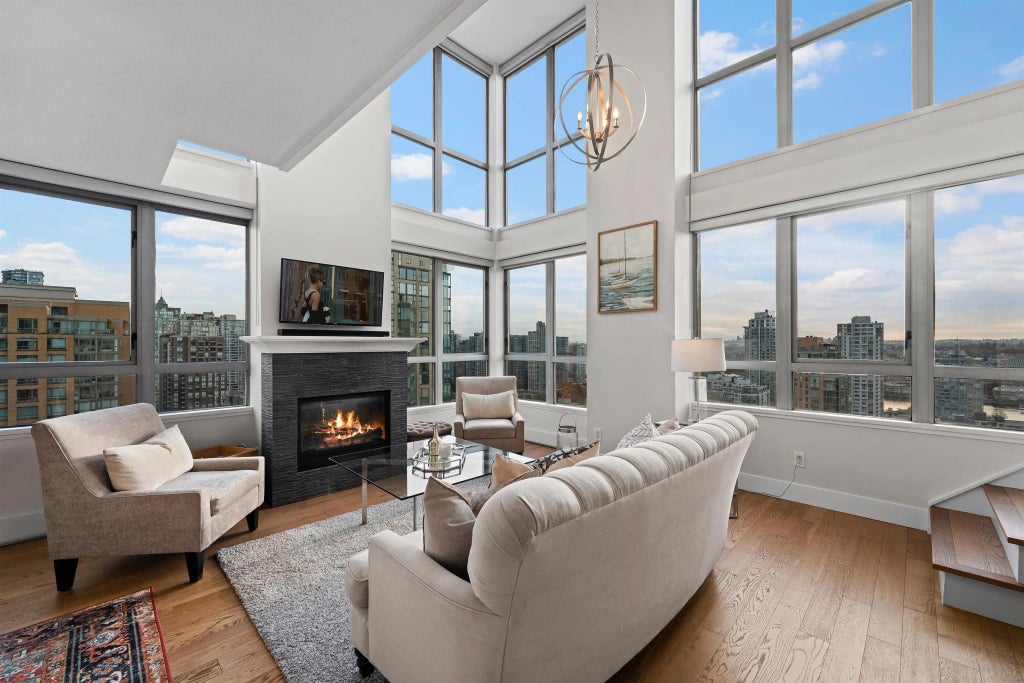

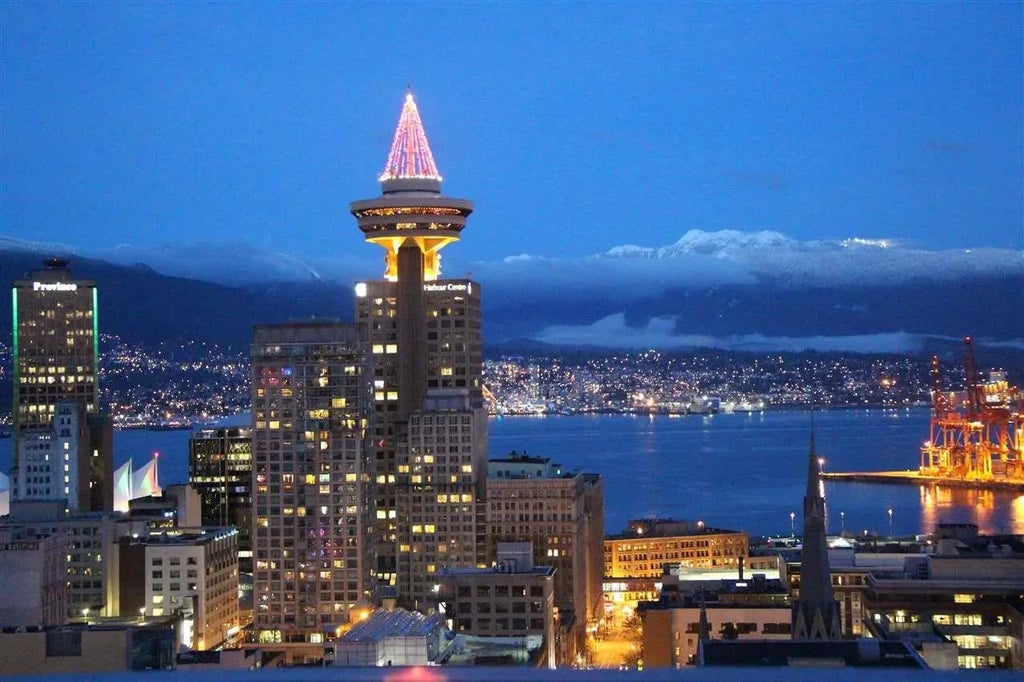



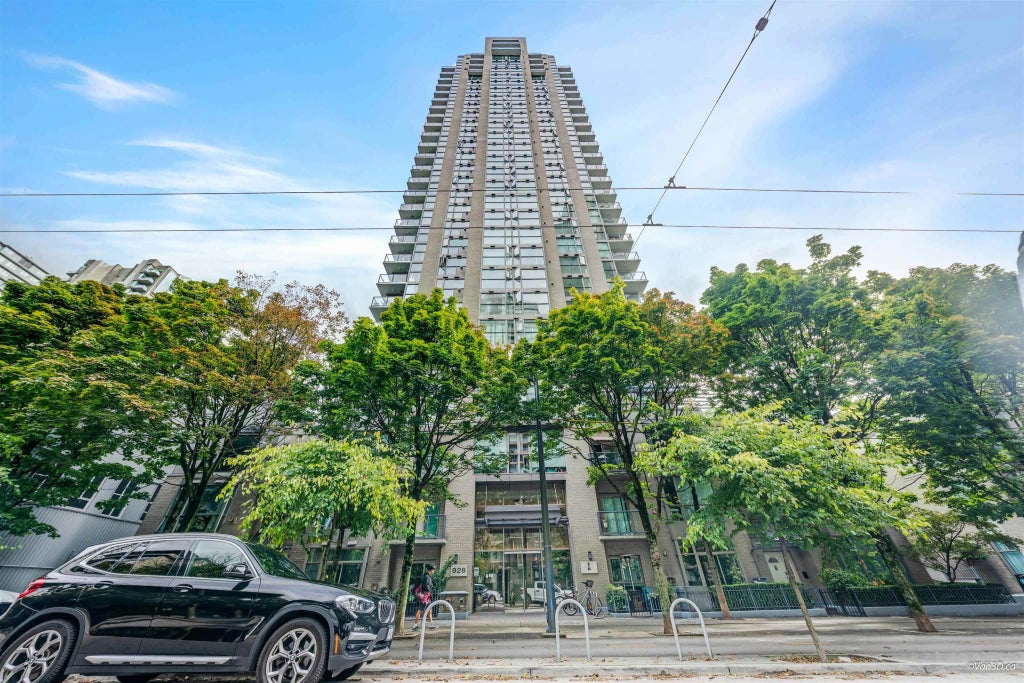
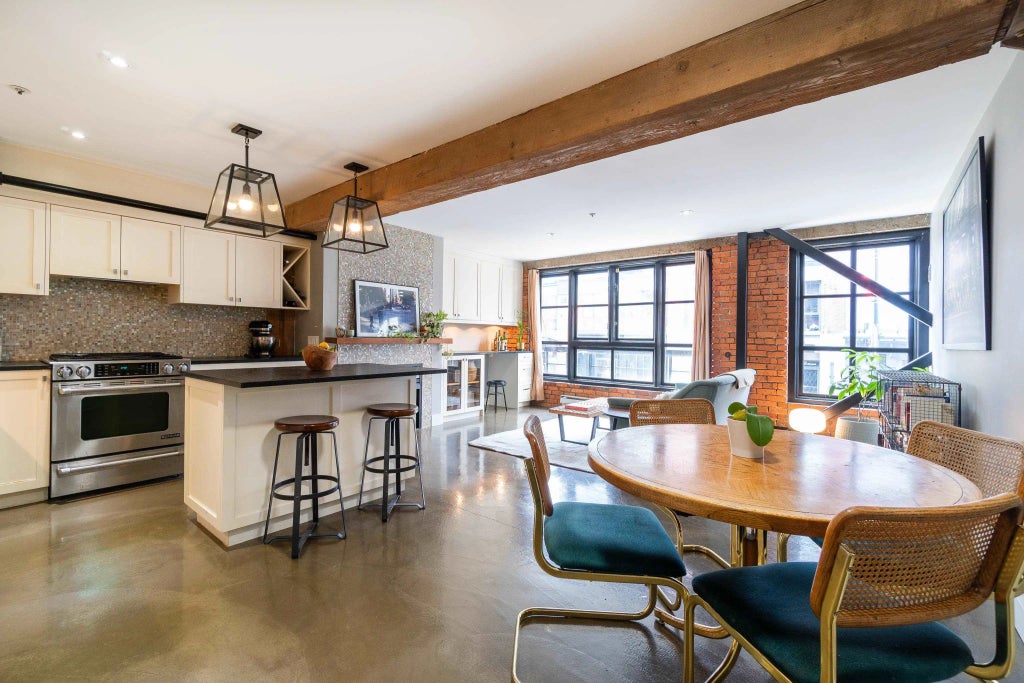
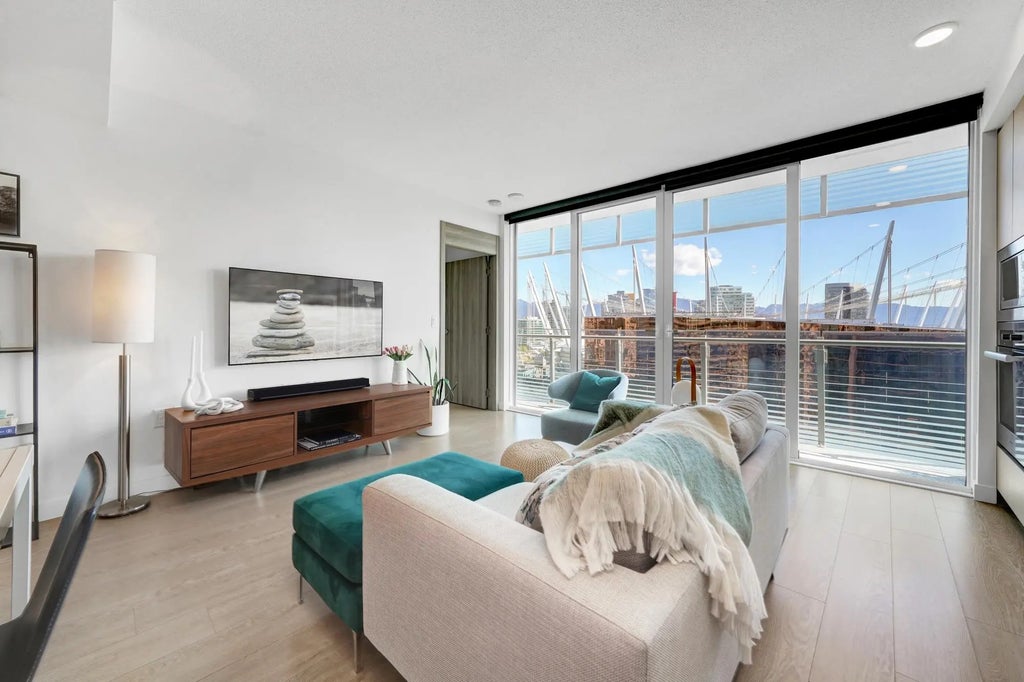


Leave A Comment